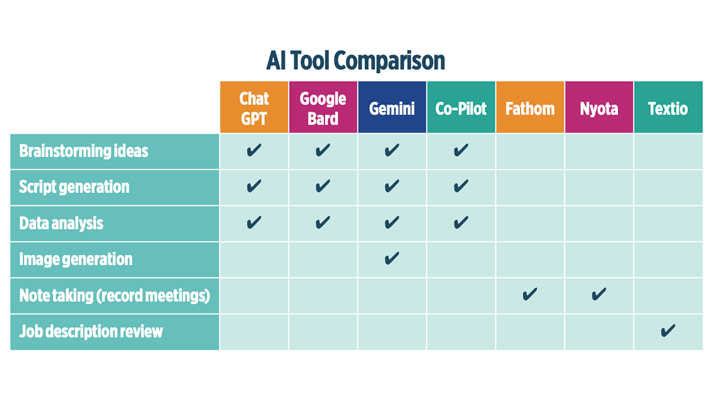Leveraging artificial intelligence for HR functions
While there is a great deal of inaccurate information and fear around the topic, artificial intelligence (AI) is rapidly becoming a valuable resource in many industries, including propane.

While AI is not a one-size-fits-all solution, it can be a powerful tool when implemented appropriately. In particular, AI offers numerous advantages for human resources (HR) functions – such as writing job descriptions, generating interview questions, screening resumes, crafting internal communications, creating policies and employee documents, and analyzing data to inform strategic decisions. It can even create training content, generate individualized development paths and automate training delivery.
However, to make the most of AI, it is crucial to understand how it works and when to apply it. Here are some important considerations before diving in:
- Understand the tools: Learn what the AI can and can’t do and how it operates.
- Don’t rely solely on AI: AI tools can produce inaccurate or incomplete results. Use them as a starting point and then edit and refine the results to align with your company’s needs. They are an augmentation, not a replacement.
- Mind your data: Ensure your data is high quality and representative. Avoid sharing personal or sensitive information with AI tools.

When you’ve done your homework and are ready to explore AI, the following tips can help you achieve better results:
- Choose the right tool: Select AI platforms that match your objectives, whether it’s automating routine tasks or analyzing complex data. See the AI Tool Comparison chart to find a tool that matches your objectives.
- Write specific prompts: Use direct, clear instructions to guide the AI. Specify formats (e.g., paragraph, conversation, step-by-step process) and any parameters such as word count or style.
- Provide context: Supply background information – such as relevant text or images – to help the AI produce more accurate and useful responses.
In HR settings, AI can also free professionals to focus on interactions.
For example, if you need to record a meeting with an employee, an AI tool can capture the conversation so you can be fully present and in the moment and give you the option to review the recording later. It can even help you summarize the conversation for notes and create follow-up questions for you.
By offloading these more administrative tasks, AI helps streamline processes and preserve important details. This example draws an important distinction for where the borders of AI’s capabilities lie: While it can help you document what was said during the interaction, it cannot accurately judge the tenor of the conversation or shape your impression of the nonverbal cues the experience offered. Was the person nervous, sad, relieved or evasive? No AI can replace your intuition, critical thinking, emotional intelligence or ethical judgment.
AI is here to stay and will continue to shape how propane companies conduct business. According to Info-Tech Research Group, investments in AI are projected to grow five times faster than the next fastest-growing technology (process automation) by 2025. The more you experiment with AI, the better you’ll become at creating prompts that deliver the outcomes you want. Embracing AI thoughtfully can improve efficiency, enhance decision-making and free up valuable time to focus on strategic growth in the propane industry.
And if you’re wondering, AI did not help me write this column. Some things are still better done by humans.
Kelly Bosak is the chief people officer at Lettermen’s Energy, where she leads a small but mighty HR team supporting Lettermen’s employees nationwide. Kelly can be contacted at kelly.bosak@lettermensenergy.com or 816-679-1105.
















